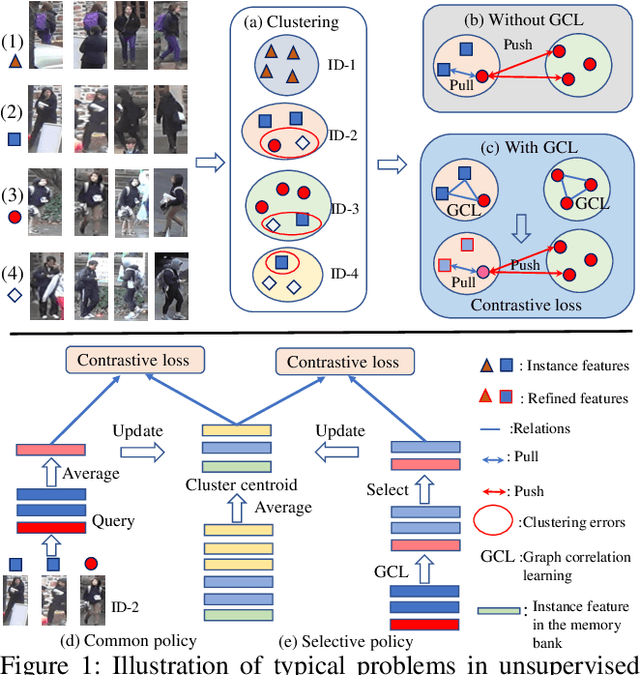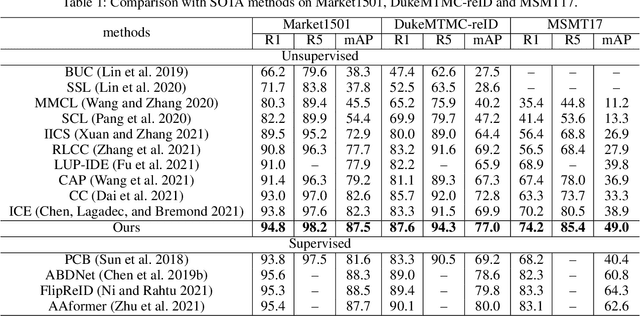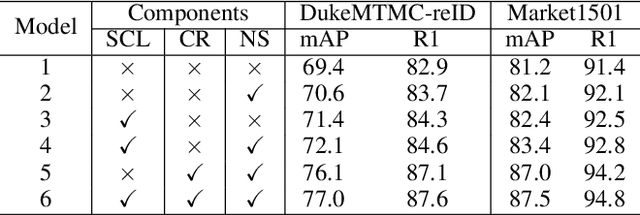Xiehao Ye
Mind Your Clever Neighbours: Unsupervised Person Re-identification via Adaptive Clustering Relationship Modeling
Dec 08, 2021



Abstract:Unsupervised person re-identification (Re-ID) attracts increasing attention due to its potential to resolve the scalability problem of supervised Re-ID models. Most existing unsupervised methods adopt an iterative clustering mechanism, where the network was trained based on pseudo labels generated by unsupervised clustering. However, clustering errors are inevitable. To generate high-quality pseudo-labels and mitigate the impact of clustering errors, we propose a novel clustering relationship modeling framework for unsupervised person Re-ID. Specifically, before clustering, the relation between unlabeled images is explored based on a graph correlation learning (GCL) module and the refined features are then used for clustering to generate high-quality pseudo-labels.Thus, GCL adaptively mines the relationship between samples in a mini-batch to reduce the impact of abnormal clustering when training. To train the network more effectively, we further propose a selective contrastive learning (SCL) method with a selective memory bank update policy. Extensive experiments demonstrate that our method shows much better results than most state-of-the-art unsupervised methods on Market1501, DukeMTMC-reID and MSMT17 datasets. We will release the code for model reproduction.
 Add to Chrome
Add to Chrome Add to Firefox
Add to Firefox Add to Edge
Add to Edge